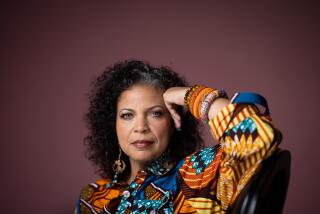NAACP Needs to Act, Not Just Talk
- Share via
In his keynote address to the NAACP’s annual conference this month, NAACP President Kweisi Mfume blasted the gun industry, the TV networks and police agencies. Mfume’s tough talk made me wonder whether the nation’s oldest civil rights group would again become the big player in the battle against racism and injustice that it has been for most of its long history. I wondered about this because the National Assn. for the Advancement of Colored People has spent most of the 1990s in a monumental retreat from cutting-edge social activism.
That retreat can be directly traced to the collapse of legal segregation in the 1960s, the class divisions that imploded within black America and the growth of the black middle class. This is a process that has been evolving since the deaths of Martin Luther King Jr. and other civil rights leaders in the 1960s.
By the close of the 1960s, the civil rights movement had spent itself. The demonstrations, sit-ins, marches and civil rights legislation removed the legal wall of segregation. The black middle class started more and better businesses, marched into more corporations and universities, won more elections, bought bigger homes and joined more country clubs.
Many packed their bags and fled to greener suburban pastures. None of their success had even the remotest bearing on the lives of the black poor, who had become even poorer and more desperate. Many of the poor turned to crime, drugs and gangs as their only way out.
NAACP officials are trapped in the middle by the twisting political trends and shifting upward fortunes of the black middle class and the downward ones of the black poor. A tilt toward an aggressive activist agenda carries the deep risk of alienating the corporate donors that NAACP officials have carefully cultivated in the past few years. They depend on them to gain more jobs, promotions and contracts for black professionals and to secure fund-raising contributions.
This is why, despite Mfume’s call to action, NAACP officials have been publicly missing in action on these pivotal issues:
* the campaign to remove the TV series “The Secret Diary of Desmond Pfeiffer” from the airwaves in 1998 and the decision by the UPN and WB networks to segregate black-themed shows into a single time block and then eventually replace them with programs that appeal to young, affluent whites;
* the refusal of major corporations to advertise on black-owned radio stations and in newspapers; the alcohol and tobacco ads targeting young blacks;
* the movie studios, record companies, black filmmakers, producers, actors and writers that continue to pump out vile, shopworn images of African Americans;
* the spread of the “three strikes” laws, which lock up mostly poor blacks and Latinos for what amount to life sentences for mainly nonviolent offenses;
* the dreary plight of thousands of black children trapped in poorly funded and negligent foster care systems;
* the escalation in the number of black women in prisons and the condition of their children left behind;
* the refusal of Congress to amend the disparity in the mandatory sentencing laws on drug use and sales.
The NAACP must back up its fighting words by attacking the pressing issues that confront poor and working-class blacks, by refusing to take money from corporations that promote unequal opportunity and by again promoting activist leadership for social change.
More to Read
Sign up for Essential California
The most important California stories and recommendations in your inbox every morning.
You may occasionally receive promotional content from the Los Angeles Times.













